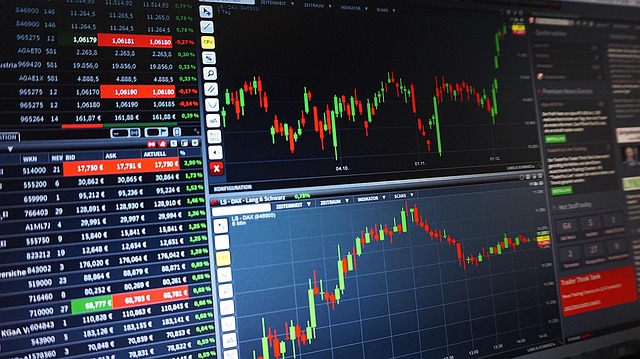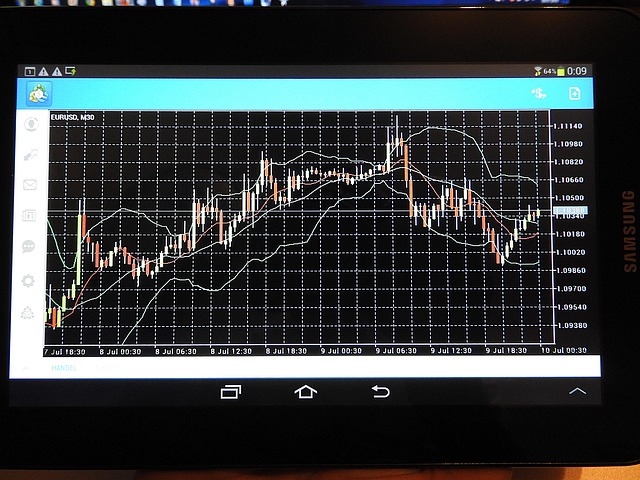Is Forex Trading Halal in Shia Islam? A Comprehensive Analysis
Author: Jameson Richman Expert
Published On: 2025-08-01
Prepared by Jameson Richman and our team of experts with over a decade of experience in cryptocurrency and digital asset analysis. Learn more about us.
Forex trading, or foreign exchange trading, has become an integral part of the global financial markets, providing avenues for investment, diversification, and wealth growth. For Muslims—particularly within the Shia community—the question of whether engaging in forex trading aligns with Islamic law (Shariah) is multifaceted. It requires a nuanced understanding of core Islamic jurisprudential principles (fiqh), such as the prohibition of riba (interest), the avoidance of gharar (excessive uncertainty), and the ban on maysir (gambling). This detailed analysis aims to clarify the permissibility of forex trading from a Shia perspective by examining classical Islamic teachings, scholarly fatwas, and practical trading strategies that uphold Islamic ethics and legal standards.

Historical and Theoretical Foundations of Currency Exchange in Islam
The Islamic jurisprudence concerning currency exchange, known as sarf, is deeply rooted in the teachings of the Prophet Muhammad (peace be upon him) and classical fiqh sources such as the books of Imam Ja'far al-Sadiq (as). Historically, currency exchange was permitted under strict conditions to ensure fairness and prevent exploitation. These conditions are derived from authentic hadiths, notably the narration where the Prophet forbade transactions involving delay or interest, emphasizing justice and transparency in trade.
Classical fiqh stipulates that currency exchange is valid if the following conditions are met:
- Immediate Settlement (Bid al-Naql): Both currencies must be exchanged simultaneously, with no deferred payment or delay.
- Equality and Similarity: The exchanged currencies should be of the same type and amount, or of equivalent value, to prevent unjust enrichment or exploitation.
- Transparency and Mutual Consent: The terms of the transaction should be clear and agreed upon by both parties, avoiding deception or concealment.
Contemporary scholars have extended these principles to modern digital and electronic currency markets, emphasizing that the core criteria—immediate exchange, fairness, and transparency—must be maintained even in virtual transactions. They also underline that any transaction involving interest or excessive speculation violates Islamic law.
Core Islamic Principles Relevant to Forex Trading
Understanding the foundational prohibitions and ethical standards is essential for assessing forex trading's permissibility:
- Riba (Interest): Any form of interest, whether in earning or paying, is unequivocally prohibited. In forex, this pertains to leverage, margin trading, and credit arrangements that involve interest, which are prevalent on conventional platforms.
- Gharar (Uncertainty): Excessive ambiguity or risk, especially in contractual terms, is forbidden. Traders should avoid transactions that resemble gambling or speculative practices lacking economic substance.
- Maysir (Gambling): Activities akin to betting or speculative bets with no real economic underpinning are considered haram. The focus should be on actual currency exchanges based on tangible needs or real economic activities.
- Fairness, Honesty, and Transparency: All transactions must be conducted ethically, with mutual consent and free from deception, manipulation, or exploitation, in line with Islamic moral standards.
Is Forex Trading Permissible in Shia Islam? An In-Depth Perspective
The permissibility of forex trading within Shia jurisprudence is nuanced and hinges on strict adherence to classical principles and modern ethical standards. Unlike some Sunni scholars who express skepticism due to high risks and speculative nature, many Shia scholars recognize that currency trading can be permissible if executed properly and ethically. The essential factors include conducting real, immediate exchanges, avoiding interest-based leverage, and steering clear of speculative practices that resemble gambling or involve excessive gharar.
Conditions for Valid and Halal Forex Transactions in Shia Jurisprudence
- Immediate and Spot Transactions: The currency exchange must be a genuine spot transaction, aligning with classical sarf principles. Forward contracts or futures are generally problematic unless they are structured to resemble spot transactions without interest or speculation.
- No Involvement of Riba (Interest): The activity must be free from any interest-bearing components. This includes avoiding leverage, margin trading, or borrowing arrangements that involve interest, which are standard in many trading platforms.
- Real Currency Exchange: The activity should involve the actual exchange of currencies, not derivatives, options, or speculative instruments based solely on price movements.
- Minimization of Gharar: Excessive uncertainty, such as high leverage or complex derivative instruments, should be avoided. The activity must be rooted in tangible economic activity rather than pure speculation or gambling.
- Transparency and Ethical Conduct: All transactions should be transparent, with clear terms, mutual consent, and no manipulation, aligning with Islamic ethics.

Scholarly Guidance and Institutional Perspectives in Shia Fiqh
Contemporary Shia scholars and Islamic financial institutions have issued guidelines and fatwas addressing forex trading. Many emphasize adherence to classical fiqh principles—particularly the importance of immediate exchange and the avoidance of interest. Institutions like the Islamic Research and Training Institute (IRTI) and others suggest that currency trading is permissible if it fulfills these strict conditions. Additionally, scholars promote the use of Islamic (swap-free) accounts, which eliminate interest charges and ensure compliance.
Key Recommendations from Shia Scholars
- Prioritize Spot Transactions: Engage only in immediate currency exchanges that reflect classical sarf principles, avoiding forward or future contracts unless they are essentially equivalent to spot trades.
- Use Islamic (Swap-Free) Accounts: Opt for trading accounts designed to prevent interest charges, such as swap-free or Islamic accounts offered by various platforms.
- Limit or Avoid Leverage: High leverage involves borrowing with interest, which is incompatible with Islamic law. Use minimal leverage or trade without leverage when possible.
- Trade for Genuine Economic Purposes: Engage in currency exchanges for trade, remittances, or other legitimate economic activities, rather than speculative profit-making.
- Seek Continuous Scholarly Advice: Consult qualified Islamic jurists regularly to ensure that complex or large transactions comply with Islamic rulings.
Practical Strategies for Conducting Halal Forex Trading
- Select Reputable Platforms: Use trading platforms that explicitly offer Islamic accounts and facilitate spot transactions, such as Binance (with Islamic options), MEXC, Bitget, and Bybit. Verify their compliance features before trading.
- Engage in Immediate Transactions: Ensure each trade involves the actual exchange of currencies with immediate settlement, avoiding derivatives like CFDs, futures, or options that are speculative in nature.
- Limit or Eliminate Leverage: Avoid high leverage, which often entails interest payments and increases risky speculation, both incompatible with Islamic law.
- Maintain Detailed Records: Keep thorough documentation of each transaction—timestamps, currency pairs, amounts—to demonstrate compliance if needed.
- Consult Scholars Regularly: Stay updated on scholarly opinions and seek advice for complex transactions to remain within halal boundaries.
Challenges and Solutions for Maintaining a Halal Forex Practice
A major challenge is avoiding high-leverage and speculative activities that resemble gambling. Traders should adopt disciplined trading plans rooted in Islamic ethics, emphasizing real economic exchanges over risky speculation. Education on the legal and ethical nuances of forex trading, along with ongoing consultation with qualified Islamic scholars, is essential. Additionally, utilizing Islamic accounts and avoiding interest-based products help mitigate unintentional violations.

Conclusion: Can Forex Trading Be Halal in Shia Islam?
After thorough examination of classical Islamic principles, scholarly opinions, and practical considerations, it is clear that forex trading can be permissible in Shia Islam if conducted within strict ethical and legal boundaries. Ensuring immediate, interest-free exchanges, minimizing speculation, and maintaining transparency are critical. When these conditions are met, Muslims can participate in forex markets responsibly, fulfilling their financial needs while adhering to their religious principles.
Additional Resources and Reputable Platforms for Halal Forex Trading
For Muslims seeking to engage in halal forex trading, the following platforms are recognized for their compliance features:
Remember, ongoing education, ethical conduct, and continuous consultation with qualified Islamic scholars are vital for maintaining a halal trading environment. By adhering to these guidelines, Muslims can responsibly participate in forex trading in accordance with their faith, ensuring both financial growth and religious compliance.